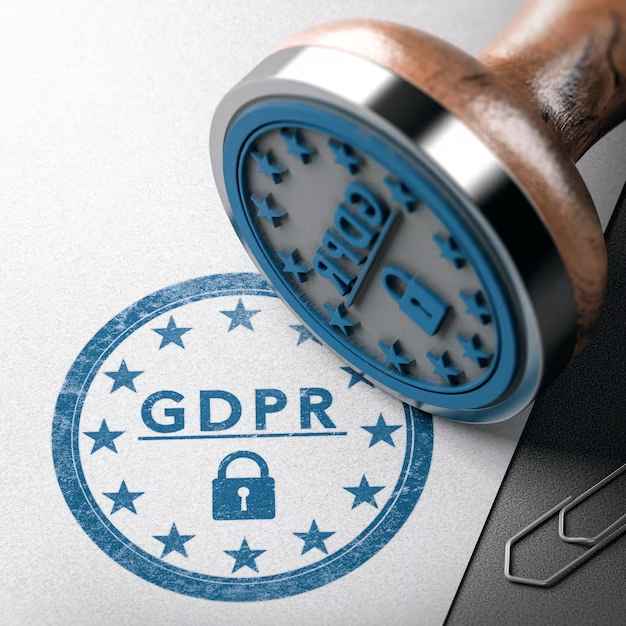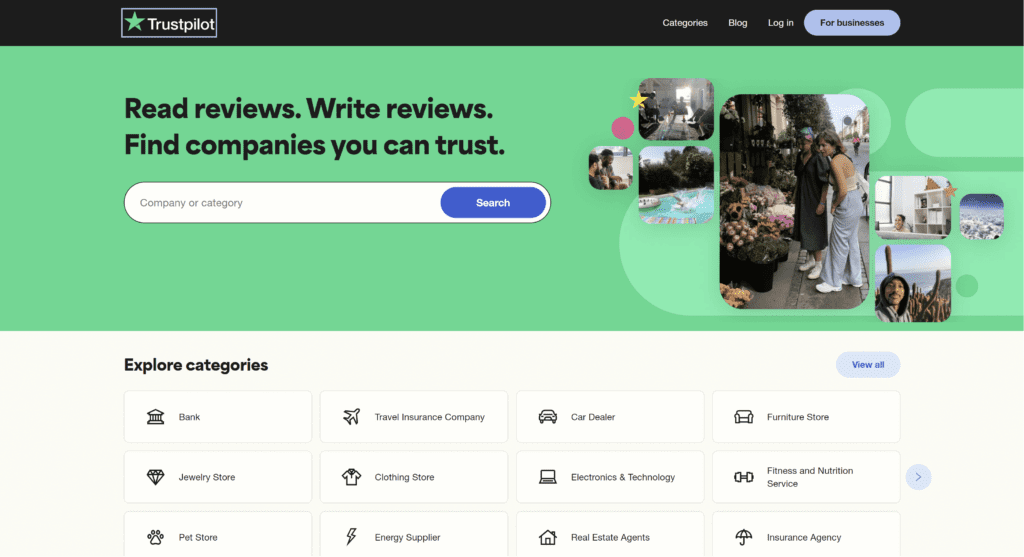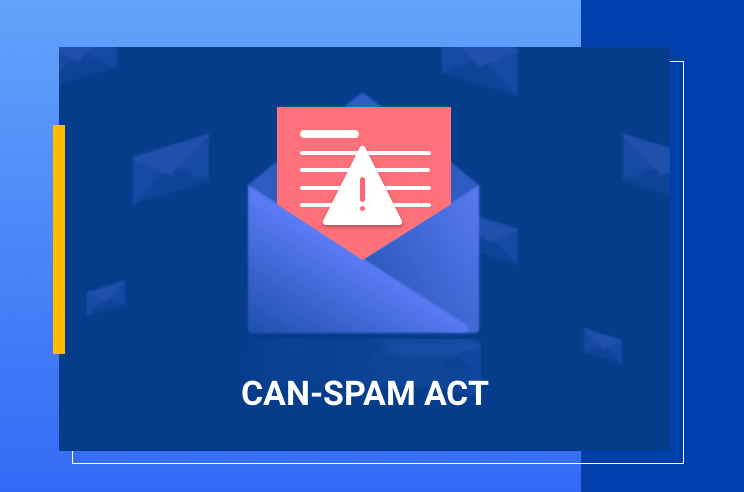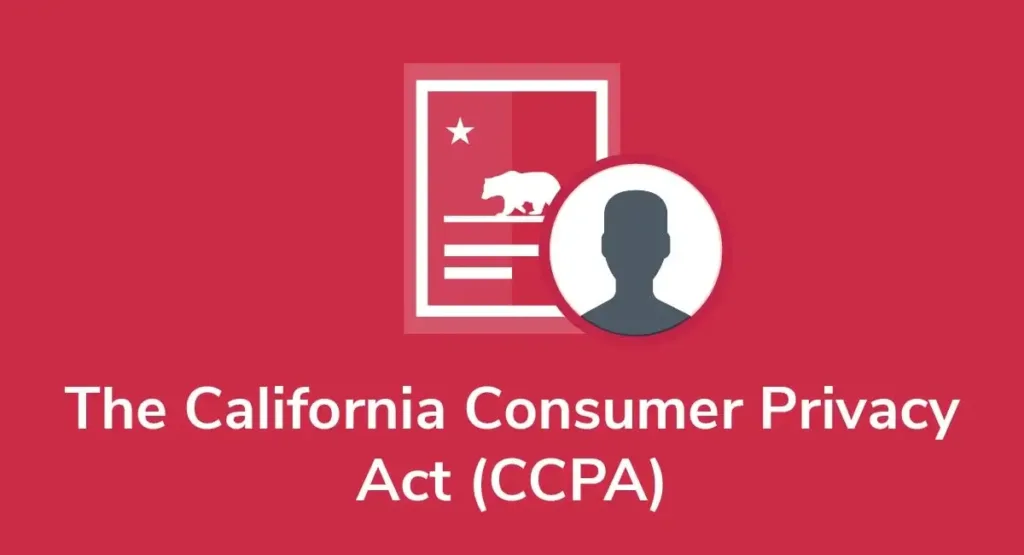Key takeaways
- Strategic Selection Matters: When considering buying email marketing lists, meticulous research on reputable vendors, understanding segmentation options, and evaluating sample data are key steps for success.
- Legal Compliance is Non-Negotiable: Adhering to data protection laws like GDPR and CAN-SPAM is crucial. Ensure explicit consent, clear opt-out mechanisms, and meticulous documentation to safeguard your business reputation.
- Explore Organic Alternatives: Instead of buying lists, leverage website sign-ups, social media engagement, targeted email campaigns, referral programs, content marketing, and webinars for sustainable and ethical audience growth.
In the ever-evolving landscape of digital marketing, harnessing the power of email remains an indispensable strategy for businesses aiming to establish meaningful connections with their target audience.
However, building an extensive and qualified email list from scratch can be a time-consuming process, prompting many businesses to explore alternative avenues for swift and effective audience expansion.
One such avenue is the practice of buying email marketing lists – a controversial yet widely utilized method that can potentially turbocharge your business outreach efforts.
In this comprehensive guide, we delve into the intricacies of “How to Buy Email Marketing Lists to Boost Your Business.”
We’ll navigate the nuanced terrain of purchasing email lists, exploring the benefits, risks, and considerations associated with this strategy.
By the end of this exploration, you’ll not only understand the potential advantages of acquiring a pre-compiled email list but also gain insights into the ethical considerations, legal compliance, and best practices that should guide your journey.

Why Consider Buying Email Marketing Lists?
As businesses vie for consumer attention in a crowded digital space, the allure of a shortcut to a vast, pre-qualified audience is undeniable. The benefits of buying email marketing lists are manifold.
Imagine expanding your reach exponentially, effortlessly tapping into demographics aligned with your product or service offerings.
By investing in a curated list, businesses can potentially save valuable time and resources that would otherwise be spent on organic list-building methods.
Navigating the Risks and Considerations
However, the path to leveraging purchased email lists is not without its pitfalls.
Legal implications, compliance with data protection laws, and the quality of the acquired lists are critical considerations that can either propel your marketing efforts to new heights or land your business in the treacherous waters of spam-related issues.
In this guide, we dissect the risks involved, providing you with a roadmap to mitigate potential downsides and make informed decisions.
Choosing the Right Email Marketing List – A Strategic Approach
Selecting the appropriate vendor such as AppLabx for your email marketing list is a pivotal decision that can shape the success of your campaigns.
We will guide you through the process of researching reputable vendors, understanding segmentation options, and evaluating sample data and testimonials.
Armed with this knowledge, you’ll be empowered to make choices that align with your business objectives and resonate with your target audience.
Embark on this journey with us as we unravel the complexities of purchasing email marketing lists, ensuring that you are equipped with the insights needed to make informed decisions for the growth and success of your business.
In the subsequent sections, we’ll explore legal compliance, alternatives to buying lists, real-life case studies, and actionable tips to maximize the value derived from purchased lists.
Let’s navigate this terrain together, ensuring that your email marketing strategies not only boost your business but do so ethically and sustainably in the digital age.
But, before we venture further, we like to share who we are and what we do.
About AppLabx
From developing a solid marketing plan to creating compelling content, optimizing for search engines, leveraging social media, and utilizing paid advertising, AppLabx offers a comprehensive suite of digital marketing services designed to drive growth and profitability for your business.
AppLabx is well known for helping companies and startups use email marketing to drive web traffic to their websites and web apps.
At AppLabx, we understand that no two businesses are alike. That’s why we take a personalized approach to every project, working closely with our clients to understand their unique needs and goals, and developing customized strategies to help them achieve success.
If you need a digital consultation, then send in an inquiry here.
How to Buy Email Marketing Lists to Boost Your Business?
- Benefits of Buying Email Marketing Lists
- Risks and Considerations
- How to Choose the Right Email Marketing List
- Legal Compliance and Best Practices
- Alternatives to Buying Email Marketing Lists
1. Benefits of Buying Email Marketing Lists
In the realm of digital marketing, the decision to buy email marketing lists is not just a shortcut; it’s a strategic move with multifaceted advantages that can propel your business into new dimensions.
Let’s delve into the tangible benefits that make purchasing email lists an enticing proposition.

Expanded Reach and Exposure
Rapid Audience Expansion
The primary allure of purchasing email marketing lists lies in the ability to swiftly expand your audience reach.
Access to Niche Markets
Purchased lists enable businesses to tap into niche markets that align with their product or service offerings.
For instance, a boutique fitness apparel brand can effortlessly target fitness enthusiasts, ensuring their marketing efforts are directed at a receptive and relevant audience.
Targeted Audience Segmentation
Demographic Precision
The granularity of purchased email lists allows for precise demographic targeting.
This ensures that your marketing messages reach individuals who are not just potential customers but are highly likely to engage with your content.
Targeted emails generate 58% of all revenue for marketers.
Behavioural Segmentation
Leveraging purchased lists with behavioural data, such as past purchases or online activities, enables businesses to tailor campaigns to specific consumer behaviors.
Time and Cost Efficiency
Resource Optimization
Acquiring an email list saves businesses the time and resources required for organic list-building methods.
Faster Marketing Campaign Deployment
The agility offered by purchased lists allows businesses to expedite their marketing campaigns.
Enhanced Brand Awareness
Immediate Visibility
By tapping into an established email list, businesses gain immediate visibility within their target market.
This jumpstart can lead to a substantial increase in brand awareness.
Word-of-Mouth Amplification
A well-targeted email campaign to a purchased list can trigger word-of-mouth amplification.
92 per cent of people trusted recommendations from friends and family above all other forms of advertising when making a purchasing decision, emphasizing the potential impact of a strategically crafted email message on brand advocacy.
2. Risks and Considerations
While the benefits of purchasing email marketing lists are undeniable, it’s crucial to approach this strategy with a discerning eye, as it is not without its risks and considerations.
In this section, we unravel the potential downsides and provide insights to navigate the complexities of leveraging purchased lists for your business.

Legal Implications and Compliance with Data Protection Laws
GDPR and Regulatory Compliance
The General Data Protection Regulation (GDPR) has stringent requirements regarding the collection and processing of personal data.
Purchasing lists without clear consent from individuals can result in severe legal consequences.

CAN-SPAM Act Compliance
The CAN-SPAM Act in the United States mandates clear opt-out mechanisms and accurate email header information.
Failure to comply can lead to hefty fines.
Quality and Relevance of Purchased Lists
Potential for Outdated Information
Purchased lists may contain outdated or inaccurate information, diminishing the effectiveness of your campaigns.
Overlapping Subscribers
There’s a risk of purchasing lists that overlap with your existing subscriber base, leading to redundancy.
This not only wastes resources but can also harm your sender’s reputation.
Potential for Spam-related Issues
Negative Impact on Sender Reputation
Sending emails to purchased lists without proper segmentation or consent can result in a high number of spam complaints.
ISP Filtering Challenges
Internet Service Providers (ISPs) use complex algorithms to filter out spam.
If your emails trigger these filters frequently, your deliverability rates may plummet.
Reputation Damage and Customer Trust
Trust Erosion
Engaging with purchased lists carries the risk of eroding customer trust.
If recipients perceive your emails as unsolicited, it can tarnish your brand image.
Long-term Repercussions
The negative impact on your brand’s reputation can have long-term consequences. It takes 12 positive experiences to make up for ONE unresolved negative experience.
3. How to Choose the Right Email Marketing List
Selecting the right email marketing list is a pivotal decision that can significantly impact the success of your campaigns.
In this section, we’ll guide you through a strategic approach to ensure you choose a list that aligns with your business objectives, engages your target audience, and adheres to ethical standards.

Researching Reputable Vendors
Vendor Reliability
Conduct thorough research to identify reputable vendors with a proven track record in providing high-quality, permission-based email lists.
Consider platforms like AppLabx which have established themselves as trustworthy sources for B2B email lists.
Customer Reviews and Testimonials
Analyze customer reviews and testimonials to gauge the satisfaction of previous clients.
Platforms like Trustpilot or G2 Crowd can offer insights into the experiences of businesses that have utilized specific vendors.
Look for vendors with positive feedback and a history of delivering accurate and relevant data.

Understanding List Segmentation Options
Demographic Segmentation
Choose a vendor that offers list segmentation based on demographics such as age, gender, location, and occupation.
This ensures that your campaigns are precisely targeted, increasing the likelihood of engagement.
Behavioural Segmentation
Look for vendors that provide behavioural segmentation options, allowing you to target individuals based on their past actions or interactions.
This can lead to more personalized and relevant campaigns.
Reviewing Sample Data and Testimonials
Request Sample Data
Before committing to a purchase, request sample data from the vendor.
This allows you to assess the quality, accuracy, and relevance of the information provided.
Client Case Studies
Explore case studies or success stories from previous clients of the vendor.
Understanding how other businesses have benefited from their services can provide valuable insights into the vendor’s capabilities.
Look for vendors that showcase real-world examples of successful campaigns.
Ensuring Legal Compliance and Best Practices
Permission-based Lists
Opt for vendors who strictly adhere to permission-based marketing practices.
Purchasing lists from sources that obtain explicit consent from individuals ensures compliance with data protection laws.
Opt-out Mechanisms
Confirm that the purchased list includes clear opt-out mechanisms, allowing recipients to unsubscribe easily.
Compliance with regulations such as the CAN-SPAM Act is crucial to avoid legal repercussions.

Regularly Updating and Cleaning the List
Data Maintenance Practices
Inquire about the vendor’s data maintenance practices, including how often the lists are updated and cleaned.
An outdated list can result in bounced emails and negatively impact your sender’s reputation.
Email marketing databases naturally degrade by about 22.5% every year.
Data Hygiene Services
Consider vendors that offer additional data hygiene services, such as email verification and validation.
These services help ensure that the list remains accurate and up-to-date, enhancing the effectiveness of your email marketing campaigns.
4. Legal Compliance and Best Practices
Ensuring legal compliance is not just a matter of avoiding penalties; it’s a crucial aspect of building trust with your audience and sustaining a positive brand reputation.
In this section, we’ll delve into the legal considerations and best practices to uphold while utilizing purchased email marketing lists.

Understanding Data Protection Regulations
GDPR Compliance
The General Data Protection Regulation (GDPR) has reshaped the landscape of data protection.
When purchasing email lists, it’s imperative to ensure compliance with GDPR, which requires explicit consent for data processing.
CCPA and Other Regional Laws
Depending on your target audience, consider additional regional data protection laws such as the California Consumer Privacy Act (CCPA) in the United States.

Permission-based Marketing Practices
Explicit Consent
Embrace permission-based marketing by ensuring that individuals on your purchased list have given explicit consent to receive marketing communications.
Opt-in Mechanisms
Implement clear and easy-to-use opt-in mechanisms in your email campaigns.
Clearly communicate the purpose of collecting email addresses and provide options for users to opt in voluntarily.
CAN-SPAM Act Compliance
Accurate Header Information
Adhere to the CAN-SPAM Act, which requires accurate header information, including a legitimate physical address.
Clear Opt-out Mechanisms
Include clear and conspicuous opt-out mechanisms in your emails, allowing recipients to unsubscribe easily.
The presence of an opt-out option is not only a legal requirement but also contributes to maintaining a positive sender reputation.
91% of email users have unsubscribed from a company email they previously opted in to.
Regularly Updating Consent and Preferences
Consent Renewal
Periodically renew consent with your email list subscribers to ensure ongoing compliance with regulations and to reflect any changes in marketing preferences.
Preference Centers
Implement preference centres where subscribers can manage their communication preferences.
This empowers individuals to choose the type and frequency of emails they receive, contributing to a more engaged and satisfied audience.
Documenting Compliance Efforts
Record-keeping Practices
Maintain meticulous records of consent, opt-in processes, and compliance efforts.
In the event of an audit or legal inquiry, having well-documented processes can serve as evidence of your commitment to legal compliance.
Regular Compliance Audits
Conduct regular compliance audits to ensure that your email marketing practices align with evolving regulations.
Staying proactive in this regard not only mitigates risks but also demonstrates your commitment to ethical and legal standards.
Educating Team Members and Stakeholders
Training Programs
Invest in training programs for your marketing team to ensure that they are well-versed in data protection laws and email marketing best practices.
Educated team members are essential for maintaining compliance in day-to-day operations.
Stakeholder Communication
Communicate your commitment to legal compliance and ethical practices to stakeholders, including clients and partners.
Transparency in your operations can enhance trust and foster positive relationships.
5. Alternatives to Buying Email Marketing Lists
The allure of purchased email marketing lists is tempered by potential legal pitfalls and risks to brand reputation.
Fortunately, there are ethical and effective alternatives for businesses looking to expand their email outreach organically.
In this section, we explore strategies and alternatives that foster audience growth without compromising on compliance or the quality of engagement.

Leveraging Website Sign-Ups
Opt-In Forms on Landing Pages
Incorporate strategically placed opt-in forms on your website’s landing pages to capture visitor information.
Incentivizing Sign-Ups
Encourage sign-ups by offering incentives such as exclusive content, discounts, or access to webinars.
Utilizing Social Media for List Growth
Engaging Content on Social Platforms
Leverage the power of social media platforms to share engaging content and drive traffic to your website.
Contests and Giveaways
Host contests or giveaways on social media platforms, requiring participants to provide their email addresses for entry.
This not only expands your email list but also increases brand visibility.
Running Targeted Email Campaigns to Attract Subscribers
Content-rich Newsletters
Create content-rich newsletters that provide value to subscribers, making them eager to receive and share your emails.
Promoting Opt-In Across Platforms
Promote your email newsletter opt-in across various platforms, including your website, social media channels, and even within your physical store if applicable.
Implementing Referral Programs
Incentivized Referrals
Establish a referral program where existing subscribers are rewarded for referring new contacts.
Word-of-mouth remains a powerful tool, and incentivizing referrals can exponentially grow your email list.
Exclusive Access for Referrers
Provide exclusive access or special perks to those who successfully refer new subscribers.
This creates a sense of exclusivity and can motivate existing subscribers to actively participate in your referral program.
Engaging in Content Marketing
Educational Blog Content
Create a blog with educational content that addresses your audience’s pain points and interests. 82% of customers have a more positive outlook on a company after reading custom content.
Lead Magnets in Content
Incorporate lead magnets within your blog content, offering downloadable resources like ebooks, whitepapers, or templates in exchange for email sign-ups.
Engaging in Webinars and Virtual Events
Webinar Registrations
Host webinars or virtual events on topics relevant to your audience, requiring participants to register with their email addresses. 73% of B2B marketers and sales leaders consider webinars as the most effective method for generating high-quality leads.
Post-event Follow-ups
Capitalize on the momentum generated by webinars by sending post-event emails to attendees, offering additional resources or exclusive deals.
Conclusion
In the fast-paced realm of digital marketing, the decision to buy email marketing lists stands as a tantalizing shortcut to rapid audience expansion.
However, as we’ve traversed the intricate terrain of purchased email lists, it becomes evident that success hinges not just on convenience but on a strategic, ethical, and compliant approach.
Let’s distill the key insights from our exploration and chart a course forward for businesses seeking to boost their outreach efforts.
A Balanced Perspective: Weighing the Benefits and Risks
As we initially embarked on this journey, we unpacked the benefits of buying email marketing lists. From expanded reach and targeted segmentation to time and cost efficiency, the advantages are alluring.
Yet, the risks and considerations are equally significant. Legal implications, the quality of purchased lists, and the potential for spam-related issues underscore the need for a nuanced evaluation before diving into the world of purchased lists.
Choosing Wisely: Strategies for Selecting the Right Email Marketing List
Our exploration continued with a detailed guide on selecting the right email marketing list.
Researching reputable vendors, understanding segmentation options, and reviewing sample data emerged as crucial steps.
By prioritizing GDPR compliance, clear opt-out mechanisms, and a commitment to data accuracy, businesses can lay the foundation for successful and ethical email marketing campaigns.
Legal Compliance and Best Practices: Safeguarding Trust and Reputation
Navigating the legal waters of email marketing list usage demands a comprehensive understanding of data protection regulations.
By prioritizing explicit consent, adhering to laws like GDPR and CAN-SPAM, and implementing transparent communication, businesses can build enduring trust with their audience.
A commitment to documentation, regular audits, and stakeholder communication solidifies the pillars of legal compliance.
Exploring Alternatives: Sustainable Paths to Organic Growth
Recognizing the potential pitfalls of purchased lists, we delved into alternatives for businesses seeking organic growth.
Leveraging website sign-ups, utilizing social media, running targeted email campaigns, implementing referral programs, engaging in content marketing, and hosting webinars emerged as ethical and effective strategies.
These alternatives not only foster audience growth but also cultivate meaningful connections with a receptive audience.
The Way Forward: Crafting a Holistic Email Marketing Strategy
In conclusion, the quest to boost your business through email marketing is not a one-size-fits-all endeavor. It requires a holistic strategy that considers the unique needs, goals, and ethical standards of your business.
Whether opting for purchased lists or pursuing organic growth, the key lies in a discerning, strategic, and compliance-driven approach.
As you embark on your email marketing journey, remember that success is not just about numbers—it’s about fostering genuine connections, providing value to your audience, and building a brand that stands the test of time.
By integrating the insights gleaned from this exploration, you’re equipped to navigate the email marketing landscape with confidence, ensuring that every campaign contributes not only to your business growth but also to the lasting trust and loyalty of your audience.
If you are looking for a top-class digital marketer, then book a free consultation slot here.
If you find this article useful, why not share it with your friends and business partners, and also leave a nice comment below?
We, at the AppLabx Research Team, strive to bring the latest and most meaningful data, guides, and statistics to your doorstep.
To get access to top-quality guides, click over to the AppLabx Blog.
People also ask
Can you legally buy email lists?
Legally buying email lists is possible, but adherence to data protection laws, like GDPR and CAN-SPAM, is paramount. Ensure vendors provide explicit consent, clear opt-out mechanisms, and maintain data accuracy to navigate legal compliance and safeguard your business reputation.
How do I promote my business through email marketing?
Promote your business through email marketing by building a targeted, permission-based list. Craft compelling content, utilize engaging visuals, personalize messages, and incorporate enticing offers. Optimize for mobile, segment your audience, and track analytics for continuous improvement and impactful results.
How to get 10,000 email subscribers?
To reach 10,000 email subscribers, focus on creating valuable content, offer incentives like exclusive discounts or resources, optimize sign-up forms, leverage social media, host webinars, and run targeted ad campaigns. Consistent engagement and providing tangible benefits will attract and retain subscribers.




































